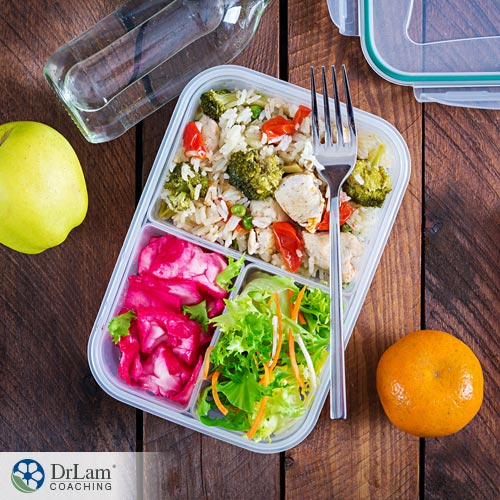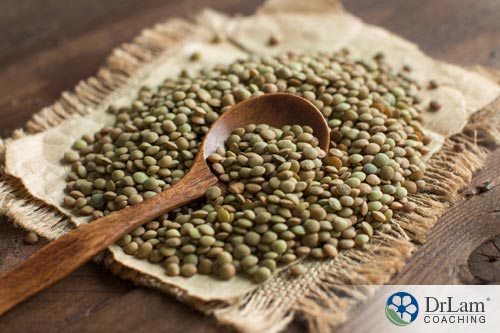 Improving your diet is one of the best things you can do for your overall health. However, it’s not as easy as it may seem. The last thing you probably want to do when you come home after a long, stressful day at work is cook a big meal. You may find yourself reaching for foods that are low in nutrients and heavily processed. That’s why a lot of people have turned to meal prepping.
Improving your diet is one of the best things you can do for your overall health. However, it’s not as easy as it may seem. The last thing you probably want to do when you come home after a long, stressful day at work is cook a big meal. You may find yourself reaching for foods that are low in nutrients and heavily processed. That’s why a lot of people have turned to meal prepping.
Adopting this type of system will allow you to cook just once a week and fill your fridge with healthy meals that you can heat up and eat on a moment’s notice. This could save you a lot of time, but it could also result in a fridge full of rotting, smelling foods long before the week is over. To avoid this, you’ll need to know how long certain foods last and which should be eaten as soon as possible.
Meal prepping can be adapted to suit any lifestyle or family configuration. Basically, it means preparing your meals ahead of time so that it only takes a few minutes to heat them up at the end of those long busy workdays. But even this definition is open to a lot of variation. You may prefer to prepare and cook several meals over the weekend and freeze them so they’re ready for reheating during the week. Or you could simply cut up everything you’ll need for your meals and store them in individual portions in the fridge so all you have to do is throw the contents into the frying pan. Meal prepping could also mean cooking a big batch of soup and serving it up smaller portions throughout the week. Whatever method you choose, you’ll need to make sure you choose foods that are healthy and safe to eat for as long as possible. This is especially important if you’re suffering from Adrenal Fatigue Syndrome (AFS) since you’ll need to eat a specific diet to help your body heal and recover.
 The NeuroEndoMetabolic (NEM) stress response system helps your body manage and mitigate the damaging effects of stress by activating various systems and organs throughout your body. The NEM stress response is essential because, although stress is often an everyday experience, for many people stress can be extremely damaging to the body. Prolonged periods of stress can cause your NEM system to break down leading to Adrenal Fatigue, characterized by a wide range of symptoms including physical, mental, and emotional issues.
The NeuroEndoMetabolic (NEM) stress response system helps your body manage and mitigate the damaging effects of stress by activating various systems and organs throughout your body. The NEM stress response is essential because, although stress is often an everyday experience, for many people stress can be extremely damaging to the body. Prolonged periods of stress can cause your NEM system to break down leading to Adrenal Fatigue, characterized by a wide range of symptoms including physical, mental, and emotional issues.
As a key part of the NEM stress response, your adrenal glands secrete hormones that are essential for several functions in the body. However, if you experience chronic stress, your adrenals can become overworked and will struggle to keep up with the ever increasing hormonal demands. This can cause dysregulation of the various systems and circuits of your body, which can result in baffling and worsening symptoms of AFS. People with AFS often experience a range of strange symptoms including fatigue, heart palpitations, digestive problems, anxiety, brain fog, food sensitivities, depression, and interrupted sleep patterns.
Adrenal Fatigue is not yet universally accepted in conventional medicine. As a result, if you suffer from these symptoms, you may struggle to find the understanding and help you need. In the early stages of AFS, medical tests usually come back normal, which often results in sufferers being told that they’re healthy and just need more rest. This could majorly threaten the health of an individual, as AFS can worsen and eventually cause a complete breakdown of your system if the source of the stress and associated symptoms are not properly addressed.
Successful AFS recovery involves two absolutely vital components. The first is to remove the cause of the original damage—which means decreasing or removing the root causes of stress so your body can start to heal and recover. For most people, this means making healthier lifestyle choices such as taking up some gentle exercise, eliminating environmental toxins, addressing toxic or unhealthy relationships and adopting stress relieving practices, such as yoga or meditation.
The second critical step to AFS recovery requires giving your body what it needs to correctly function and heal. Adopting a healthy diet that supplies your body with all the nutrients it needs and avoiding the foods that cause further inflammation and damage are vitally important. To heal your AFS, you’ll need to focus on a diet that is rich in fruits and vegetables, lean proteins, and healthy grains and eliminate processed, unbalanced, and chemically created or altered foods. This will not only give your body the nutrients it needs to function properly, but will also directly address some of the symptoms of AFS such as fluctuating blood sugar levels, weight gain, and food sensitivities. In turn, this may decrease your AFS symptoms and lower your overall stress levels, thereby allowing your body to heal and recover.
If you have AFS, vegetables should be one of the most important parts of your diet and should make up about 30 to 40 percent of what you eat. For safe and tasty prepped vegetables, make sure you adhere to the following guidelines:
Proteins are extremely important when you have AFS. Your diet should consist of around 20 to 30 percent lean protein to meet your nutritional needs and help you feel satiated for longer. When meal prepping different types of proteins, you need to know the following:

It’s important to eat whole grains when you have AFS. Whole grains are good for your digestive system and contain lots of the nutrients your body needs.
Fruit is a very small part of the AFS eating plan for a number of reasons, but mainly because it contains a lot of sugar and can cause fluctuating blood sugar levels. However, eating some fruit should still be part of a healthy AFS diet, which means you need to know which fruits are best for meal prepping. The following fruits prep very well:

 If you struggle to eat healthy meals when you’re busy, meal prepping may be a great option for you. It’s an effective way to cut down on the amount of cooking you have to do after a long and tiring day at work. This is incredibly important if you suffer from a disorder like AFS. Your successful recovery will rely on giving your body all the essential nutrients it needs to heal from the damaging effects of stress. By learning how to cook once for the entire week and ensuring you have a variety of meals in your fridge simply waiting to be quickly thrown together, you can make your everyday life easier and little less stressful. This will be great for your AFS recovery as well as the overall quality of your everyday life.
If you struggle to eat healthy meals when you’re busy, meal prepping may be a great option for you. It’s an effective way to cut down on the amount of cooking you have to do after a long and tiring day at work. This is incredibly important if you suffer from a disorder like AFS. Your successful recovery will rely on giving your body all the essential nutrients it needs to heal from the damaging effects of stress. By learning how to cook once for the entire week and ensuring you have a variety of meals in your fridge simply waiting to be quickly thrown together, you can make your everyday life easier and little less stressful. This will be great for your AFS recovery as well as the overall quality of your everyday life.
When you do meal prepping, you cook once and store everything, so you’ll always have something healthy, tasty, and easy to prepare when you’re hungry. If you choose the right foods, you can prepare meals a week in advance and avoid reaching for unhealthy choices when you’re too tired to cook.
